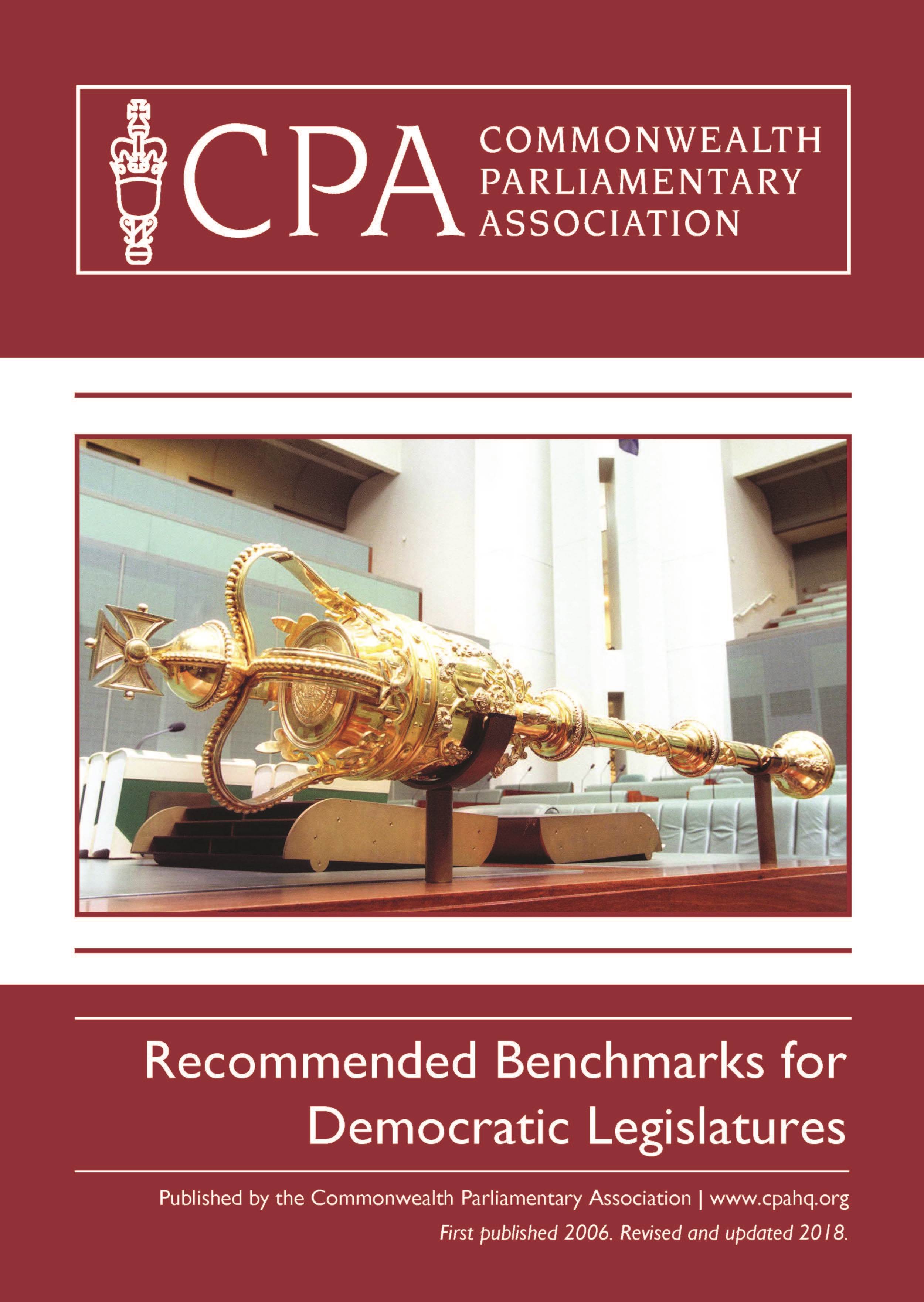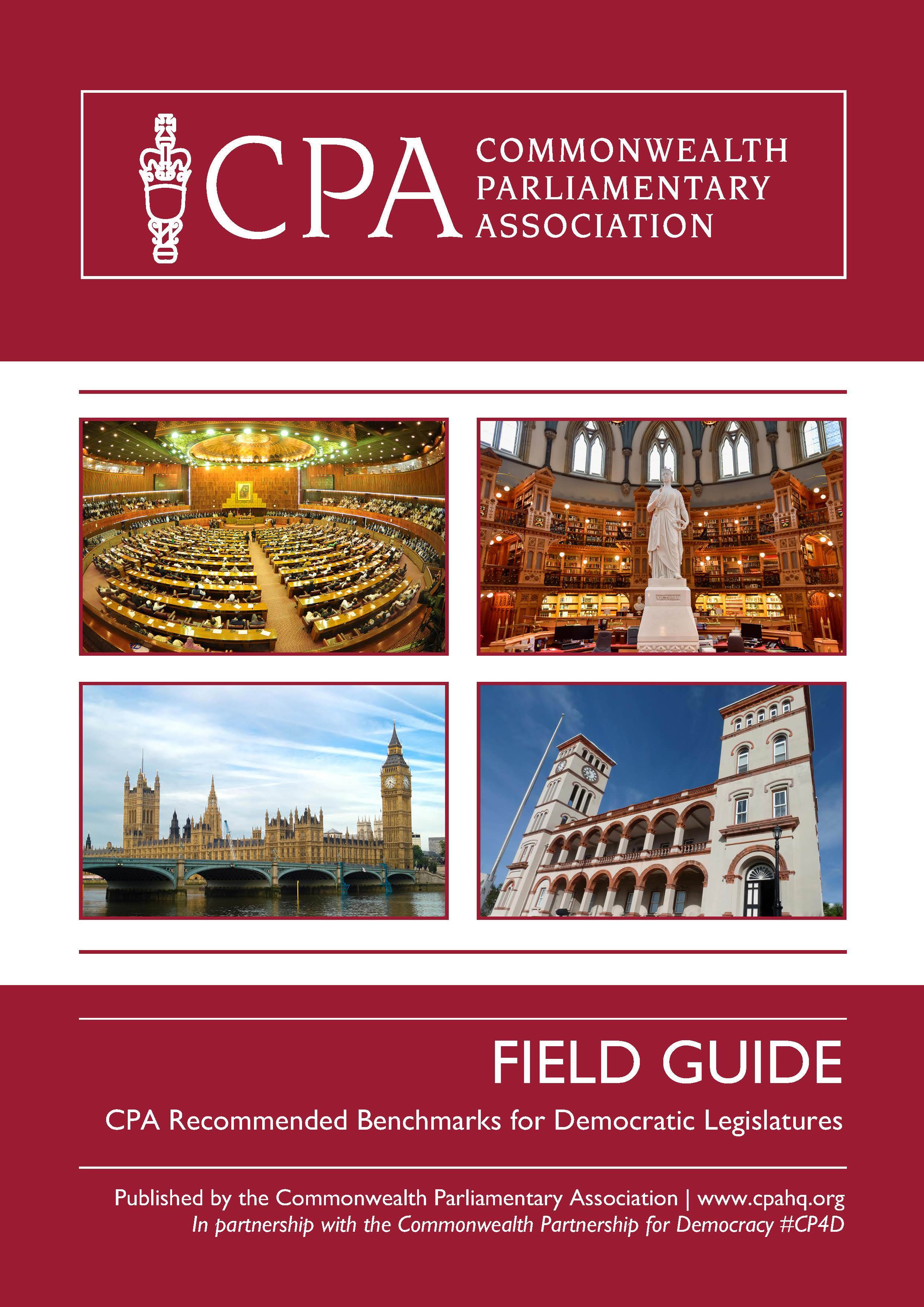
Use and Application
Why?
Parliaments do not always have the time to take the long-term view of their work and how they operate. Every effective institution must have time set aside for self-reflection to enable it to identify where it is working well, where it can do better and where other similar institutions have provided a good example of what can be done within their own institution.
As such, every Parliament, no matter its level of maturity or current rules, can benefit from a consideration of what it does and how it functions. Therefore, the CPA Benchmarks for Democratic Legislatures should be a tool by which Parliaments can compare their practices to the standards that have been developed by the CPA and adopted by member Parliaments.
As can be seen in the Outcomes section the Benchmark assessment process can lead to significant change for the legislature, where there is a broad political buy-in of the process. It provides an invaluable opportunity for political stakeholders within a jurisdiction to drive change.
Who?
Within each Parliament, there are two key groups who should be involved in an assessment against the CPA Benchmarks.
- Members of the Parliament need to be engaged in the assessment process to ensure their viewpoints and experience are part of the review. This must include robust representation from government, opposition and independent Members.
- Staff of the Parliament need to be engaged. This will include not only senior staff, but can also include more junior, technical staff. As the institutional memory of a Parliament, their perspective is also critical to a self-assessment of the institution.
- External entities also should be part of the process. Whether that be wider governmental stakeholders, independent/semi autonomous commissioners, etc, civil society, non-governmental organisations, development partners, and of course, the public and the media.
What is essential though, is that the Speaker/Presiding Officer and the Clerk of Parliament (in both bicameral chambers if applicable) should be leading and holistically involved in the process - from beginning to end.
Key Considerations
Beyond the groups of people to be engaged, it is critical to consider other factors in ensuring those engaged can provide the inputs for an effective assessment. These include:
- Diversity: As much as possible, the group engaged in the self-assessment should reflect the society-at-large. This means ensuring appropriate gender and ethnic balance. Ideally, women should make up 50% of the participants. Ethnic, religious, racial and other minorities should be well-reflected in the assessment groups. Other marginalised groups should also have a voice during the process.
- Leadership: The Parliamentarians and staff engaged in the review should be well-respected by their colleagues and have the capacity and weight to ensure that they reflect the views of a broader group and not just their own opinion. It is important that these individuals can move beyond the natural partisanship that occurs in any Parliament, to take a longer view of their institutional and democratic development.
- Experience: Each person engaged in the self-assessment will come with different types of experiences. For example, it should not be only those MPs or parliamentary staff with over ten-years experience who are engaged. The perspective of new staff and MPs, of women and other marginalised groups will provide different and important perspectives that need to be included in the process.
When?
The assessment can be conducted whenever the Parliament believes it is an opportune time for self-reflection. But some critical points for self-reflection may include:
- When contributing to strategic planning/annual performance reporting: Some Parliaments prepare an annual performance report that outlines strategic goals for the Parliament and reports progress achieved against those goals on an annual basis. The self-assessment process can be used to set goals for strengthening parliamentary processes, while the Benchmarks can be developed as key performance indicators. For example, with respect to CPA Benchmark 10.1.7, the objective may be to move from a website that does not maintain updated information in a timely manner to a website that is updated in a timely manner;
- When reacting to effectiveness issues: There are times in the life of a Parliament when issues arise that challenge the status quo of how a Parliament operates. Perhaps a Committee is demanding more authority to conduct a proper inquiry. Perhaps a Bill is being passed with limited public input and this process is being criticised. No matter the reason that has created the circumstances for questioning the effectiveness of the institution, this can be an opportunity for a self-assessment to start a process of self-reflection and the impetus for parliamentary reform;
- As part of an Induction Programme/at the beginning of the Parliamentary Term: Induction training is generally provided to new Parliamentarians following a general election. The purpose is to provide them with the initial knowledge required to get up to speed on parliamentary operations and processes. The CPA Benchmarks can be used to identify best practices and prompt a discussion as to how those best practices can be achieved. At the beginning of a new Parliament there may be a review of the Standing Orders and otherwise an atmosphere in which Members and parliamentary staff are open to reflecting on the rules and processes in their Parliament and beyond. This may or may not be linked to a new government being elected. Establishing benchmarks at the beginning of the parliamentary term can also provide an opportunity to discuss any progress made closer to the end of the life of the Parliament. Parliamentary staff can then write a ‘legacy report’ - which reflects on the progress made over the life of the Parliament and the challenges that remain;
- When reporting to international bodies: At the national level, there are numerous international conventions that require national governments to report on their progress (e.g. Sustainable Development Goals (SDGs); UN Convention against Corruption (UNCAC); Convention on the Elimination of all Forms of Discrimination Against Women (CEDAW)). Many of these conventions and obligations have an element that includes the role of the Parliament in bringing about accountability and inclusiveness. For example, for the SDGs each country will have to provide updates from time to time at the annual High Level Political Forum. Among the reporting by governments will be the need to report on progress on SDG 16. Indeed, Parliaments (national and sub-national) will be expected to add their report to that of the national government on their progress in achieving relevant SDG 16 targets. In the lead up to such reporting, it may be useful for a Parliament to engage in a self-assessment to provide a recent, evidence-based assessment of where the institution is currently;
- For Parliamentary Monitoring Groups: In many countries, civil society organisations monitor and report publicly on the performance of Parliament and Parliamentarians against a set of stated objectives. The CPA Benchmarks can help civil society organisations to identify both objectives and indicators to measure progress. An assessment of public access to and participation in parliamentary processes can also be undertaken by Parliament with a parallel process being undertaken by civil society organisations;
- For Federal/Provincial or Regional Comparisons: Federal systems may choose to assemble senior staff and Parliamentarians from the federal and provincial Legislatures as this offers a rich opportunity to compare experience within a similar political environment. Similarly, neighbouring countries or countries that are members of the CPA Region may choose to gather their senior staff and Parliamentarians. The purpose is not to rank jurisdictions but rather to offer the opportunity to exchange experience and examine best practices based on the CPA Benchmarks;
- When seeking external assistance: In countries where development assistance is provided, Parliaments are often the beneficiary of such assistance from groups such as UNDP, NDI, WFD, USAID and the EU. Conducting a self-assessment can allow for a Parliament to establish the baseline of its practices that can form part of a parliamentary development project document. It can result in the provision of evidence of the need for such assistance and where it should be focused. The CPA will only provide Technical Assistance Programmes to those Branches that have undergone an assessment against the Benchmarks;
- To progress reforms which have previously stalled: Often the need for reform is already known and perhaps some progress has been made to achieve change, but hasn't been fulfilled or done so to a sufficient degree. An assessment can help to reinvigorate change and make progress as it can reinforce arguments and bring in a broader group of stakeholders;
- When an external perspective is called for: Sometimes 'familiarity breeds contempt' (as the saying goes) and internal stakeholders based in-country, like a Clerk may not always be taken seriously when raising issues which warrant change. On the other hand, an external actor, such as the CPA can provide a different perspective and broader degree of authority and expertise. This in turn might garner a greater degree of interest and respect. As such, by bringing in the CPA via the provision of a consultant to help undertake an assessment alongside internal stakeholders may result in a further reforms. However, when an assessment takes place will be dependent on the CPA's availability.
How?
For a detailed guide as to how to undertake an assessment, it is recommended that the Field Guide is read. However, there are two approaches that can be taken by Parliaments.
Option 1. Supported Self-Assessment
- Begins with the Parliament undertaking a technical review using the worksheet led by the Speaker and supported by a Clerk.
- CPA support is provided by sourcing and deploying 1-2 experts to assess the Parliament in their assessment against all (or some) Benchmarks in consultation with all key domestic stakeholders.
- The CPA team produce a draft report with recommendations which are submitted to the Parliament for review, amendment and approval.
- Once approved the report is laid in Parliament and published.
- Parliament and key stakeholders consider recommendations and way forward.
Option 2. Unsupported Self-Assessment
- The Parliament undertakes a technical review, using the CPA Benchmarks Field Guide, which is undertaken by a Clerk or an independently sourced external entity. A committee/panel maybe established to oversee the process and outcomes.
- All, or some of the Benchmarks are used by the Parliament to assessment themselves against.
- The Parliament should ensure that all key stakeholders are consulted and engaged with, especially the opposition and non-parliamentary entities.
- A Report produced and submitted to relevant senior stakeholders to consider and take forward.
There may be a variation of these two approaches adopted by the Parliaments, dependent on their ultimate objectives.
However the Benchmarks and Assessment are not:
- intended to compare one jurisdiction with another.
- an internal investigative exercise to solely identify weaknesses and failures.
- a scoring or ranking exercise to simply say what Benchmarks are met and not met
- an assessment of theory alone, as opposed to what happens in practice
- owned by the CPA - the process is owned by the Parliament that undertakes and Assessment.
- confidential and secretive - the process should be an open and transparent process with broad buy-in and engagement.
- the sole burden and responsibility of the Speaker - the institution of Parliament is the responsibility of all Members and the public and there should be wider ownership of the process.
- a process of producing a report which sits on a shelf and gathers dust - the Benchmarks assessment process and any outcome documents should be 'live documents' which should be continuously reviewed and implemented.


